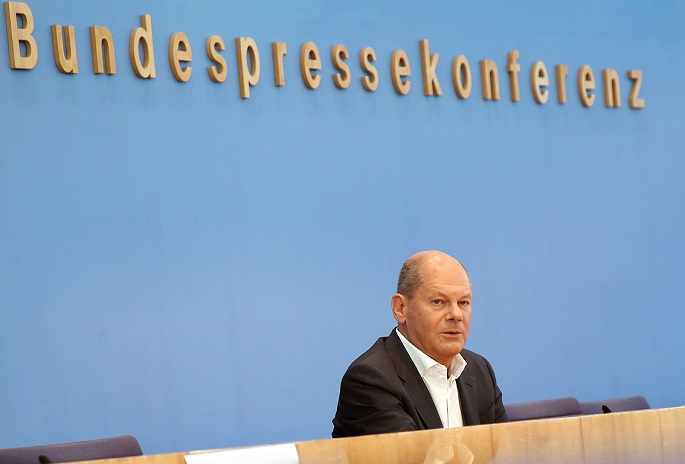Scholz flags further military, financial aid for Ukraine
Published : 11 Aug 2022, 23:01
German Chancellor Olaf Scholz has announced further large-scale financial and military support for Ukraine in its effort to repel Russia's invasion, which began nearly six months ago.
The war continues to demand "that we take far-reaching decisions to support Ukraine in its struggle for independence," Scholz said during his first summer press conference since he took office last year.
His government was "breaking with previous practice by supplying weapons - very, very many, very far-reaching, very efficient weapons - and we will continue to do so in the near future," he said on Thursday.
"We support Ukraine financially and we have prepared ourselves for the fact that the impact of this war affects the whole world, but of course also Europe and our country."
Scholz did not give a clear answer on whether he would work to ensure that Russian President Vladimir Putin was held accountable for war crimes in Ukraine, and said only that Putin bears responsibility for the war.
Scholz gave a similarly ambiguous answer when asked whether he would welcome it if former chancellor Gerhard Schröder acted as an intermediary with Russia regarding a dispute over reduced gas deliveries.
"I wouldn't know," he said, while adding that it "would be a commendable business" if Schröder were to talk to Moscow about a repaired turbine that has been cited by Russian authorities as the reason for its decision to throttle gas flows through the Nord Stream 1 pipeline to Germany.
Berlin and Moscow are trading blame as to why the turbine has been stuck in transit for weeks, despite being ready to return to operation.
Schröder, who was in office between 1998 and 2005, has been criticized for years for his involvement with Russian state-owned companies and is considered a close personal friend of Putin.
The pressure on Schröder to distance himself from Putin increased after Russia's invasion of Ukraine in February.
In May, Schröder finally announced that he would leave the supervisory board of the Russian energy giant Rosneft. He also turned down a nomination for a supervisory board position at Gazprom.
But in a recent interview with private broadcaster RTL/ntv, Schröder once again refused to distance himself from Putin. He also advocated putting the controversial Nord Stream 2 Baltic Sea pipeline, which was put on hold in light on the Russian invasion, into operation.


